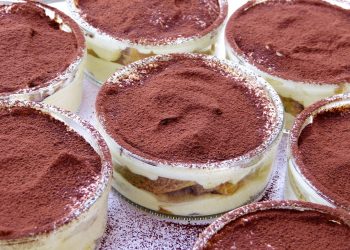The Sweet Truth: Raising Healthy Kids Without Added Sugar
As parents, we all want the best for our children, and that includes nourishing them with healthy, balanced meals. However, navigating the world of kid-friendly food can feel like a minefield of added sugars. From sugary cereals to sweetened yogurts, it seems like sugar is lurking everywhere. But don’t worry, creating delicious and nutritious sugar-free meals for your kids is absolutely achievable! This guide will provide you with practical tips, kid-approved recipes, and the knowledge you need to confidently reduce added sugar in your child’s diet.
Why Reduce Added Sugar in Your Child’s Diet?
Before we dive into recipes, let’s understand why reducing added sugar is so important. While naturally occurring sugars found in fruits and vegetables are part of a healthy diet, added sugars, found in processed foods and sugary drinks, offer little nutritional value and can contribute to several health problems:
- Weight Gain and Obesity: Excess sugar consumption leads to weight gain and increases the risk of childhood obesity.
- Tooth Decay: Sugar feeds bacteria in the mouth, leading to cavities and dental problems.
- Increased Risk of Type 2 Diabetes: A diet high in added sugar can increase the risk of developing type 2 diabetes later in life.
- Mood Swings and Energy Crashes: Sugar can cause rapid spikes and crashes in blood sugar levels, leading to mood swings and energy fluctuations.
- Poor Nutrient Intake: Kids who consume a lot of sugary foods often eat fewer nutrient-rich foods like fruits, vegetables, and whole grains.
Decoding Food Labels: Spotting Hidden Sugars
The first step in reducing added sugar is becoming a label detective. Food labels can be tricky, as sugar often hides under various names. Be on the lookout for these common aliases:
- High-Fructose Corn Syrup
- Sucrose
- Glucose
- Fructose
- Dextrose
- Maltose
- Corn Syrup
- Agave Nectar
- Honey (use sparingly)
- Molasses
- Evaporated Cane Juice
- Maple Syrup (use sparingly)
Remember, ingredients are listed in descending order by weight. So, if any of these sugars appear high on the list, it’s likely the product contains a significant amount of added sugar. Aim for products with little to no added sugars.
Tips for Transitioning to a Lower-Sugar Diet
Making gradual changes is key to success. Here are some tips to help your child adjust to a lower-sugar lifestyle without feeling deprived:
- Start Slowly: Don’t try to eliminate all sugar overnight. Gradually reduce the amount of added sugar in your child’s diet.
- Focus on Whole Foods: Emphasize fruits, vegetables, lean proteins, and whole grains. These foods are naturally nutrient-rich and satisfying.
- Make Smart Swaps: Replace sugary drinks with water, unsweetened tea, or infused water with fruits and herbs. Swap sugary cereals for oatmeal or whole-wheat toast with avocado.
- Read Labels Carefully: As mentioned above, become a label detective and choose products with minimal added sugar.
- Get Kids Involved: Involve your children in meal planning and preparation. This helps them learn about healthy eating and feel more invested in making healthy choices.
- Lead by Example: Children are more likely to adopt healthy habits if they see their parents doing the same.
- Don’t Demonize Sugar: Restricting sugar completely can backfire. Instead, focus on moderation and making healthy choices most of the time. Occasionally, a small treat is perfectly fine.
Kid-Friendly Sugar-Free Recipes: Delicious and Nutritious!
Here are some delicious and easy-to-prepare sugar-free recipes that your kids will love. Remember to adjust seasonings and ingredients to suit your family’s preferences.
Breakfast Ideas
1. Oatmeal with Berries and Nuts
A warm and comforting breakfast that’s packed with fiber and antioxidants.
- Ingredients: 1/2 cup rolled oats, 1 cup water or milk (unsweetened almond or soy milk), 1/4 cup berries (fresh or frozen), 1 tablespoon chopped nuts (almonds, walnuts, or pecans), a dash of cinnamon.
- Instructions: Combine oats and water or milk in a saucepan. Bring to a boil, then reduce heat and simmer for 5-7 minutes, or until the oats are cooked through. Top with berries, nuts, and cinnamon.
2. Scrambled Eggs with Veggies
A protein-packed breakfast that’s easy to customize with your child’s favorite vegetables.
- Ingredients: 2 eggs, 1 tablespoon milk or water, 1/4 cup chopped vegetables (such as bell peppers, spinach, or mushrooms), salt and pepper to taste.
- Instructions: Whisk together eggs, milk or water, salt, and pepper. Sauté vegetables in a pan until softened. Pour egg mixture over vegetables and cook, stirring occasionally, until the eggs are set.
3. Smoothie with Spinach, Banana, and Berries
A quick and easy way to sneak in some greens without your kids even noticing!
- Ingredients: 1 cup spinach, 1/2 frozen banana, 1/2 cup frozen berries, 1/2 cup unsweetened almond milk or water, 1 tablespoon nut butter (optional).
- Instructions: Combine all ingredients in a blender and blend until smooth.
Lunch Ideas
1. Whole-Wheat Turkey and Avocado Wrap
A healthy and filling lunch that’s perfect for on-the-go.
- Ingredients: 1 whole-wheat tortilla, 2 slices of turkey breast, 1/4 avocado (mashed), lettuce, tomato (optional).
- Instructions: Spread mashed avocado on the tortilla. Top with turkey, lettuce, and tomato (if using). Roll up tightly and slice in half.
2. Chicken Salad Lettuce Cups
A lighter and healthier twist on traditional chicken salad.
- Ingredients: 1 cup cooked chicken (shredded), 1/4 cup plain Greek yogurt, 1 tablespoon chopped celery, 1 tablespoon chopped onion, salt and pepper to taste, lettuce leaves.
- Instructions: Combine chicken, Greek yogurt, celery, onion, salt, and pepper in a bowl. Mix well. Spoon chicken salad into lettuce leaves and serve.
3. Leftovers!
Don’t underestimate the power of leftovers! Pack up dinner from the night before for a convenient and healthy lunch option. Roasted chicken and veggies, lentil soup, or a whole-wheat pasta dish are all great choices.
Dinner Ideas
1. Baked Salmon with Roasted Vegetables
A healthy and delicious dinner that’s packed with omega-3 fatty acids and nutrients.
- Ingredients: 4 salmon fillets, 1 tablespoon olive oil, 1 teaspoon lemon juice, salt and pepper to taste, 1 cup chopped vegetables (such as broccoli, carrots, and bell peppers).
- Instructions: Preheat oven to 400°F (200°C). Toss vegetables with olive oil, salt, and pepper. Spread vegetables on a baking sheet. Place salmon fillets on top of vegetables. Drizzle salmon with lemon juice, salt, and pepper. Bake for 15-20 minutes, or until salmon is cooked through and vegetables are tender.
2. Turkey Meatloaf with Sweet Potato Mash
A classic comfort food made healthier with ground turkey and sweet potatoes.
- Ingredients: 1 pound ground turkey, 1/2 cup rolled oats, 1/4 cup chopped onion, 1 egg, 1 tablespoon ketchup (sugar-free), salt and pepper to taste, 2 sweet potatoes.
- Instructions: Preheat oven to 375°F (190°C). Combine ground turkey, oats, onion, egg, ketchup, salt, and pepper in a bowl. Mix well. Shape mixture into a loaf and place in a baking dish. Bake for 45-50 minutes, or until cooked through. While meatloaf is baking, peel and chop sweet potatoes. Boil sweet potatoes until tender. Mash with a fork or potato masher. Season with salt and pepper to taste.
3. Lentil Soup
A hearty and nutritious soup that’s packed with fiber and protein.
- Ingredients: 1 cup lentils, 4 cups vegetable broth, 1 cup chopped vegetables (such as carrots, celery, and onions), 1 teaspoon olive oil, salt and pepper to taste.
- Instructions: Heat olive oil in a large pot. Add vegetables and sauté until softened. Add lentils and vegetable broth. Bring to a boil, then reduce heat and simmer for 30-40 minutes, or until lentils are tender. Season with salt and pepper to taste.
Snack Ideas
1. Apple slices with peanut butter
2. Celery sticks with hummus
3. Plain yogurt with berries
4. Hard-boiled eggs
5. Trail mix (nuts, seeds, and dried fruit – choose options with no added sugar)
6. Cheese sticks
7. Air-popped popcorn (unsweetened)
Navigating Parties and Special Occasions
Parties and special occasions can be challenging when trying to limit sugar intake. Here are some tips to help you navigate these situations:
- Offer Healthy Alternatives: Bring a healthy dish to share, such as a fruit salad or vegetable platter.
- Talk to the Host: If you’re comfortable, talk to the host about your child’s dietary needs and see if they’re open to offering some healthier options.
- Set Expectations: Talk to your child beforehand about what to expect at the party and what they’re allowed to eat.
- Allow for a Treat: Depriving your child completely can lead to resentment and overeating later on. Allow them to have a small treat, but encourage them to focus on the healthier options available.
- Focus on Fun: Remind your child that parties are about spending time with friends and having fun, not just about the food.
Conclusion
Reducing added sugar in your child’s diet is a worthwhile investment in their long-term health and well-being. By becoming a label detective, making smart swaps, and offering delicious and nutritious sugar-free meals, you can help your child develop healthy eating habits that will last a lifetime. Remember, it’s not about perfection, but about making consistent, positive changes. Embrace the journey and enjoy the process of creating a healthier and happier family!
FAQs About Sugar-Free Meals for Kids
- Is it safe to completely eliminate sugar from my child’s diet?
- Completely eliminating all sugar is not necessary or recommended. Focus on reducing added sugars while still allowing for naturally occurring sugars found in fruits, vegetables, and dairy products. These foods provide essential nutrients that are important for your child’s growth and development.
- What are some natural sweeteners I can use instead of sugar?
- While it’s best to reduce reliance on sweeteners overall, some natural options can be used sparingly. These include:
- Stevia: A natural, zero-calorie sweetener derived from the stevia plant.
- Monk Fruit: Another natural, zero-calorie sweetener.
- Erythritol: A sugar alcohol that is generally well-tolerated.
- Dates: Blended dates can add sweetness and fiber to recipes.
Remember to use these sweeteners in moderation, as even natural sweeteners can contribute to a preference for sweet tastes.
- My child is a picky eater. How can I get them to eat sugar-free meals?
- Patience and persistence are key! Here are some tips:
- Introduce new foods gradually.
- Offer a variety of foods.
- Prepare foods in different ways.
- Involve your child in meal planning and preparation.
- Don’t force your child to eat something they don’t like.
- Be a good role model.
- What are some healthy sugar-free snacks for kids on the go?
- Some great options include:
- Fruits (apples, bananas, berries, oranges)
- Vegetables with hummus
- Nuts and seeds
- Cheese sticks
- Hard-boiled eggs
- Plain yogurt
- How can I make birthday parties and holidays less sugary?
- Consider these strategies:
- Request that guests bring non-food gifts.
- Offer healthier food options alongside traditional treats.
- Prepare a healthier cake or dessert using natural sweeteners and less sugar.
- Focus on activities and games rather than just the food.
- Is fruit juice okay for kids?
- Whole fruit is always a better choice than fruit juice. Juice lacks the fiber found in whole fruit, which helps to slow down the absorption of sugar and provides a feeling of fullness. If you do offer juice, limit it to small portions and choose 100% fruit juice with no added sugar. Consider diluting the juice with water.
- How can I handle sugar cravings?
- Sugar cravings are common, especially when you’re trying to reduce your sugar intake. Here are some ways to manage them:
- Eat regular meals and snacks to prevent blood sugar dips.
- Choose complex carbohydrates over simple carbohydrates.
- Stay hydrated by drinking plenty of water.
- Find healthy alternatives to satisfy your sweet tooth, such as fruit or yogurt with berries.
- Engage in physical activity to boost your mood and reduce cravings.












